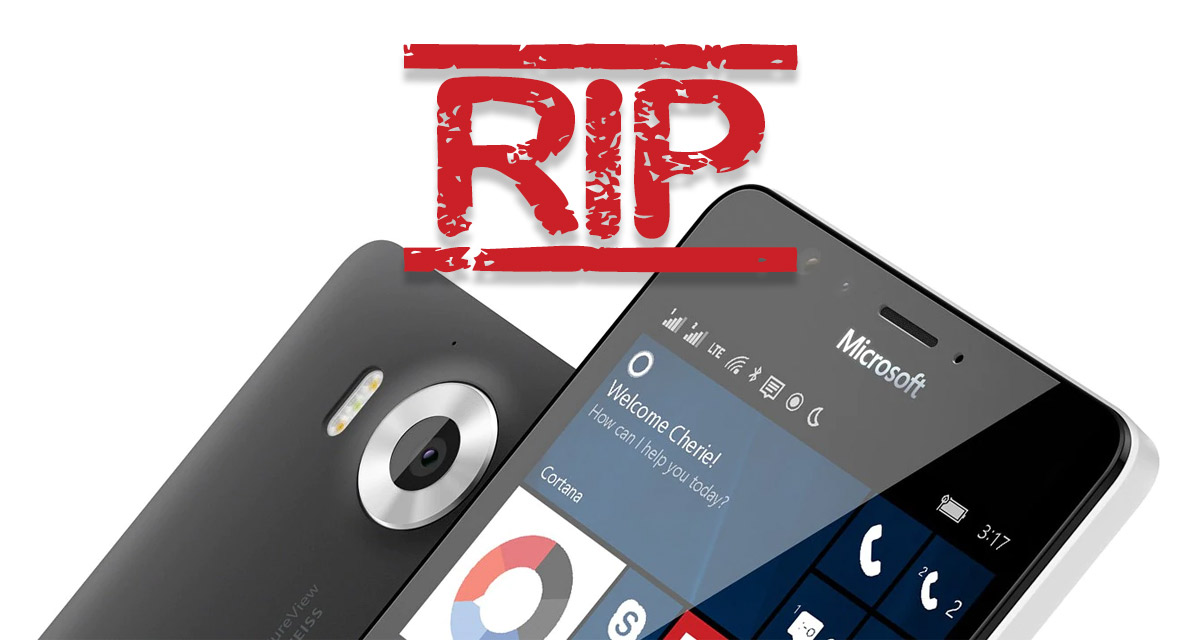We all knew that it was coming. In fact, it was almost inevitable before the journey had even begun. Microsoft is calling it a day in the smartphone world by issuing an End of Support document for Windows 10 Mobile which calls for users to move away to one of the two big mobile platforms.
Microsoft has pushed out the “Windows 10 Mobile End of Support: FAQ” page which exists to ask and answer an array of popular questions that the company believes its user will ask, or which they have already been asking.

The Redmond-based powerhouse confirms that security updates for Windows 10 Mobile will stop on December 10, 2019, and although devices will continue to work beyond that, no further updates or support will be provided in an official capacity by Microsoft.
The page answers some pretty important questions that current Windows Phone users will have, such as “Will my device continue to work after December 10, 2019?” and “will my apps continue to be supported?” As far as the latter goes, Microsoft confirms that apps are entirely independent of the company’s OS Lifecycle policy and could still receive support from developers as the Store “may continue to work after the end of support date.” The operative word in that answer being “may”.
Interestingly, Microsoft also hosts a question titled “What should Windows 10 Mobile customers do now?” and the answer may surprise you. It seems that Microsoft’s official guidance on the topic is to advise customers to move away and get themselves a “supported Android or iOS device:
What should Windows 10 Mobile customers do now?
With the Windows 10 Mobile OS end of support, we recommend that customers move to a supported Android or iOS device. Microsoft’s mission statement to empower every person and every organization on the planet to achieve more, compels us to support our Mobile apps on those platforms and devices.

(Image: Microsoft’s funeral parade for the iPhone back in 2010)
The end of the road for Windows 10 Mobile has been a long time coming. Microsoft employee Joe Belfiore confirmed on Twitter that developers hadn’t taken to the platform as the company would have hoped, suggesting that “volume of users is just too low for most companies to invest” the resources that it would need to bring their apps to the platform. Ultimately, it’s that lack of variation and choice of apps which has led to the platform’s demise.
(Source: Microsoft)
You may also like to check out:
- Jailbreak iOS 12.1.2: New Jailbreak Exploit On Horizon Once Patched In 12.1.3 Update
- Download iOS 12.1.3 Beta 3 IPSW Links And OTA Update
- Download iOS 12.1.2 16C104 IPSW Links, OTA For iPhone XS, Max, XR, X And More
- How To Downgrade iOS 12.1.2 To iOS 12.1 / iOS 12.1.1
- iOS 12.1.2 Release Notes, Changelog And Other Changes As Highlighted By Apple
- Jailbreak iOS 12.1.2 Being Flaunted By Alibaba Team For A12 Devices
You can follow us on Twitter, add us to your circle on Google+ or like our Facebook page to keep yourself updated on all the latest from Microsoft, Google, Apple, and the Web.

